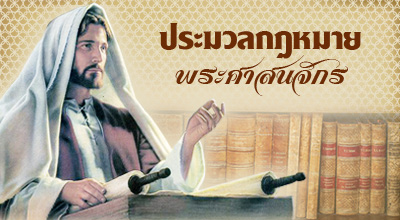


ส่วน ๓ จารีต และพิธีเฉลิมฉลองศีลมหาสนิท
๙๒๔ วรรค ๑ ต้องถวายบูชาศีลมหาสนิท อันศักดิ์สิทธิ์ยิ่ง โดยใช้ขนมปัง และเหล้าองุ่น ซึ่งผสมกับน้ำเล็กน้อย
วรรค ๒ ปังต้องทำจากแป้งข้าวสาลีเท่านั้น และเป็นปังที่ทำใหม่ๆ อย่างที่ว่าไม่มีอันตรายที่จะเสื่อมสภาพ
วรรค ๓ เหล้าองุ่นต้องเป็นเหล้าองุ่นธรรมชาติ ทำจากผลองุ่นและต้องเป็นเหล้าองุ่นที่ยังไม่เสื่อมสภาพ
๙๒๕ การรับศีลมหาสนิท ให้รับในรูปของปังเท่านั้น หรือให้รับทั้งในรูปของปังและเหล้าองุ่นตามกฎพิธีกรรม ในกรณีจำเป็นอาจรับในรูปของเหล้าองุ่นอย่างเดียวได้
๙๒๖ ในการเฉลิมฉลองศีลมหาสนิท ตามธรรมเนียมโบราณของพระศาสนจักรลาติน พระสงฆ์ต้องใช้ปังไม่มีเชื้อ ณ ที่ใดก็ตามที่เขาถวายบูชามิสซา
๙๒๗ การเสกศีลเพียงรูปเดียว โดยไม่เสกอีกรูปหนึ่ง หรือการเสกทั้งสองรูป นอกการถวายบูชามิสซา ทำไม่ได้เลย แม้ในกรณีจำเป็นที่สุดเร่งรัด
๙๒๘ การถวายมิสซา อาจถวายเป็นภาษาลาติน หรือภาษาอื่นก็ได้ ขอแต่ให้หนังสือพิธีกรรมได้รับการรับรองอย่างถูกต้อง
๙๒๙ ในการถวายบูชามิสซา และการบริการศีลมหาสนิท พระสงฆ์และสังฆานุกร ต้องสวมอาภรณ์ศักดิ์สิทธิ์ ตามข้อกำหนดของพิธีกรรม
๙๓๐ วรรค ๑ พระสงฆ์ป่วยหรือชรา ถ้ายืนไม่ได้ ก็นั่งถวายบูชามิสซาได้ โดยต้องถือตามกฎพิธีกรรม แต่มิใช่ต่อหน้าสัตบุรุษ เว้นแต่ได้รับอนุญาตจากผู้ใหญ่ผู้ทรงอำนาจท้องถิ่น
วรรค ๒ พระสงฆ์ตาบอด หรือที่เจ็บป่วยอย่างอื่น ถวายบูชามิสซาได้โดยชอบ โดยใช้หนังสือมิสซาใดๆ ก็ได้ ที่ได้รับการรับรองแล้ว พร้อมกับมีผู้ช่วยเหลือถ้าจำเป็น ไม่ว่าเป็นพระสงฆ์ หรือสังฆานุกร หรือแม้ฆราวาสที่ได้รับการ
Can. 924 $1. The most holy Sacrifice of the Eucharist must be offered in bread, and in wine to which a small quantity of water is to be added.
$2. That bread must be wheaten only, and recently made, so that there is no danger of corruption.
$3. The wine must be natural, made from grapes of the vine, and not corrupt.
Can. 925 Holy communion is to be given under the species of bread alone or, in accordance with the liturgical laws, under both species or, in case of necessity, even under the species of wine alone.
Can. 926 In the eucharistic celebration, in accordance with the ancient tradition of the latin Church, the priest is to use unleavened bread wherever he celebrates Mass.
Can. 927 It is absolutely wring, even in urgent and extreme necessity to consecrate one element without the other, or even to consecrate both outside the eucharistic celebration.
Can. 928 The eucharistic celebration is to be carried out either in the latin language or in another language, provided the liturgical texts have been lawfully approved.
Can. 929 In celebrating and administering the Eucharist, priests and deacons are to wear the sacred vestments prescribed by the rubrics.
Can. 930 $1. A priest who is ill or elderly, if he is unable to stand, may celebrate the eucharistic Sacrifice sitting but otherwise observing the liturgical law; he may not, however, do so in public except by permission of the local Ordinary.
$2. A priest who is blind or suffering from some other infirmity, may lawfully celebrate the eucharistic Sacrifice by using the text of any approved Mass, with the assistance, if need be, of another priest or deacon or even a properly instructed by person